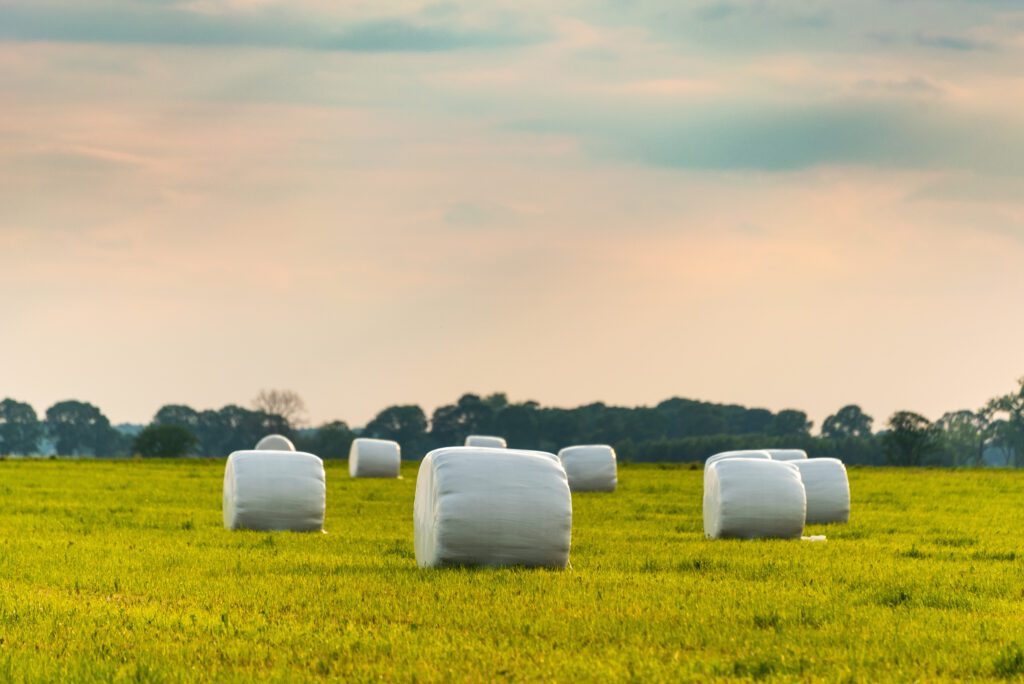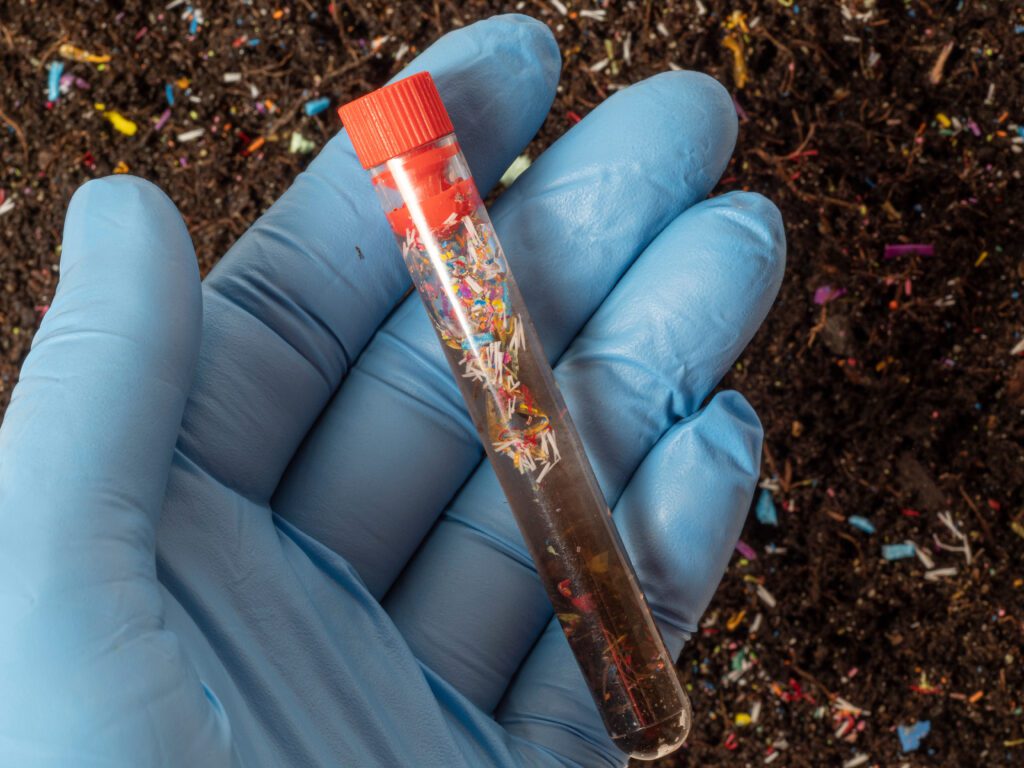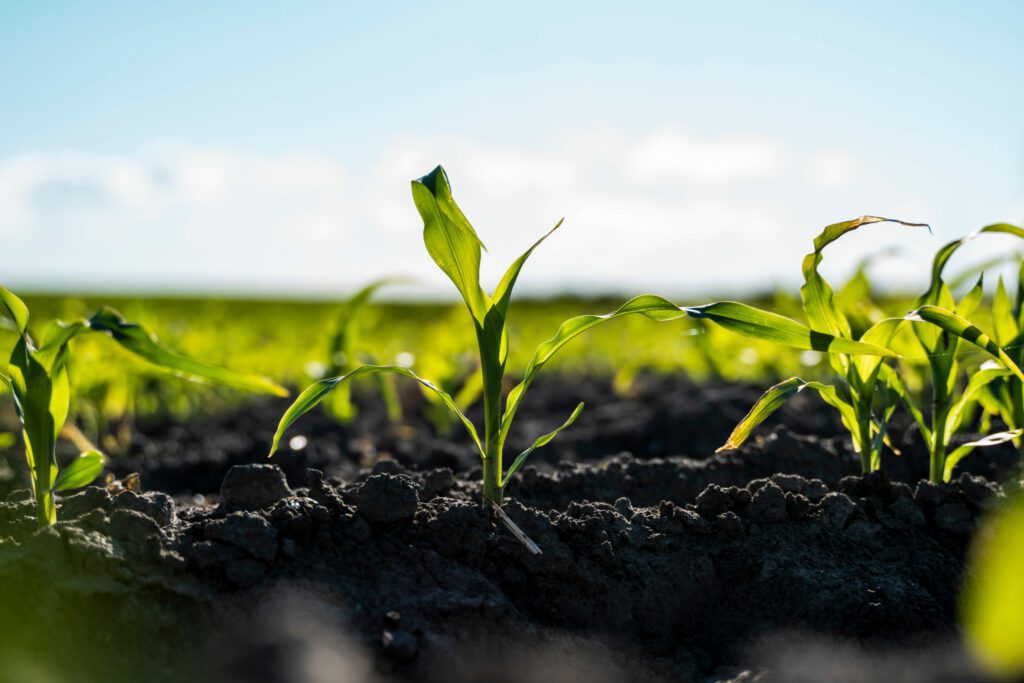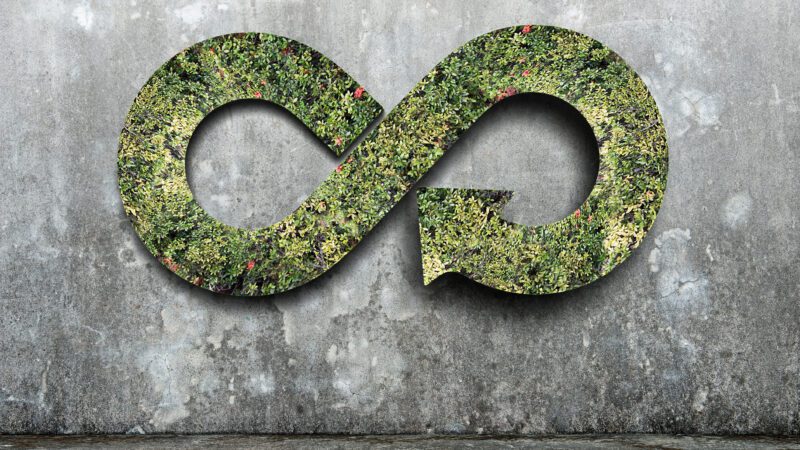- About UKCPN
- Focus areas
-
-
Featured challenge
-
Other focus areas
-
-
-
- Funding & opportunities
- News & insights
- Events
- Impact
There are clear environmental benefits from using plastics in agriculture, for example to extend local growing seasons and protect hay/silage etc. from becoming unusable. However most of these plastics are single use and can persist in the environment long after their intended use. Agricultural plastic waste accounts for approximately 1.5% of overall volume of plastic waste in the UK with a recycling rate about 25%. Globally, 12.5 million tonnes of plastic is used in plant and animal production. The harmful impact of fugitive plastics entering the environment from agricultural sources is becoming clear throughout multiple ecosystems.
These plastics also affect the health of the land, water and air by entering the natural world: windblown, burnt, buried, spread, fly tipping and ploughed in.

What interventions would be preferred by the sector? Some options are:
Eunomia was commissioned by the European Commission to carry out a study to identify the environmental impacts associated with conventional and biodegradable agricultural plastics and make recommendations of measures to be implemented to reduce these impacts.


GRIPS 2021 and GRIPS 2022 sessions ‘Plastics in Agriculture’ and ‘Agriculture: Sustainability & Plastics’ have highlighted how plastics are used in agriculture, the challenges faced in using them sustainably, and the need for behaviour change, as well as solutions & innovative business models. GRIPS2022 discussed teaching resources and new ways of engaging farmers to recycle, innovative ways of regulating policy and exploring opportunities that agriculture brings to the next generation of plastics.
APE Europe is the non-packaging plastics products’ association for agriculture. APE is acting for a sustainable, profitable production, and a reliable agri-plastics’ end of life management. Their priority is to provide farmers and growers with sustainable solutions for their production and the end of life management of agri-plastics.
Cleanfarms is a non-profit environmental stewardship organisation. They work collaboratively with members, partner agencies, and the government to ensure that Canadian farmers can actively contribute to a healthy environment and a sustainable future.
Dairy Australia is developing a national collection and recycling scheme for silage plastic with support from the Commonwealth Government’s National Product Stewardship Investment Fund.



